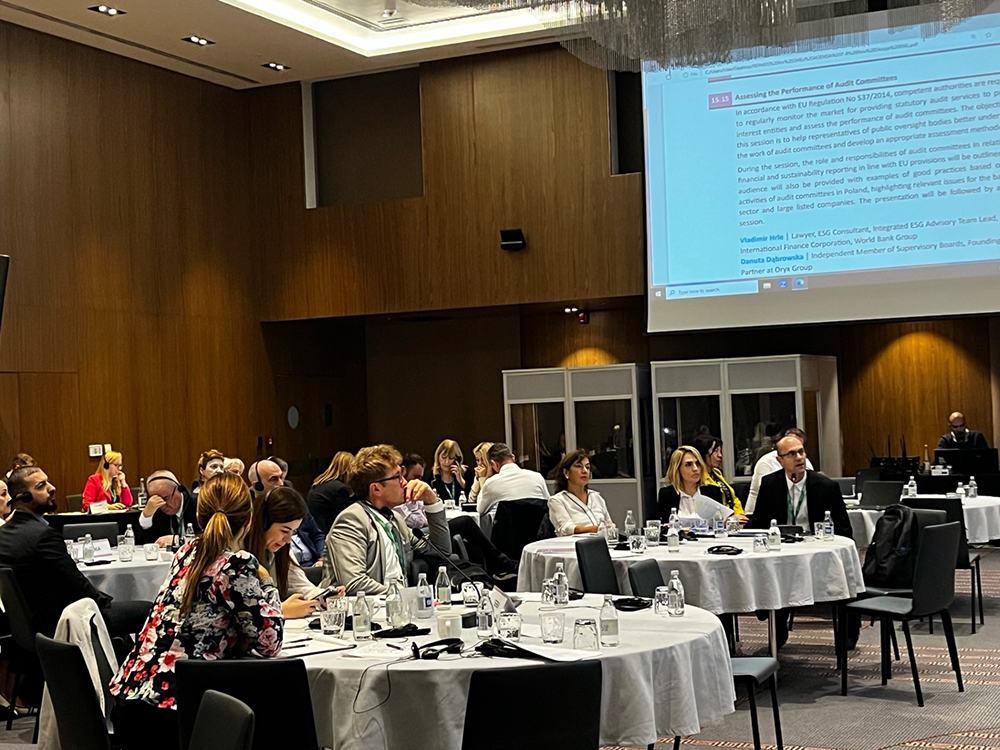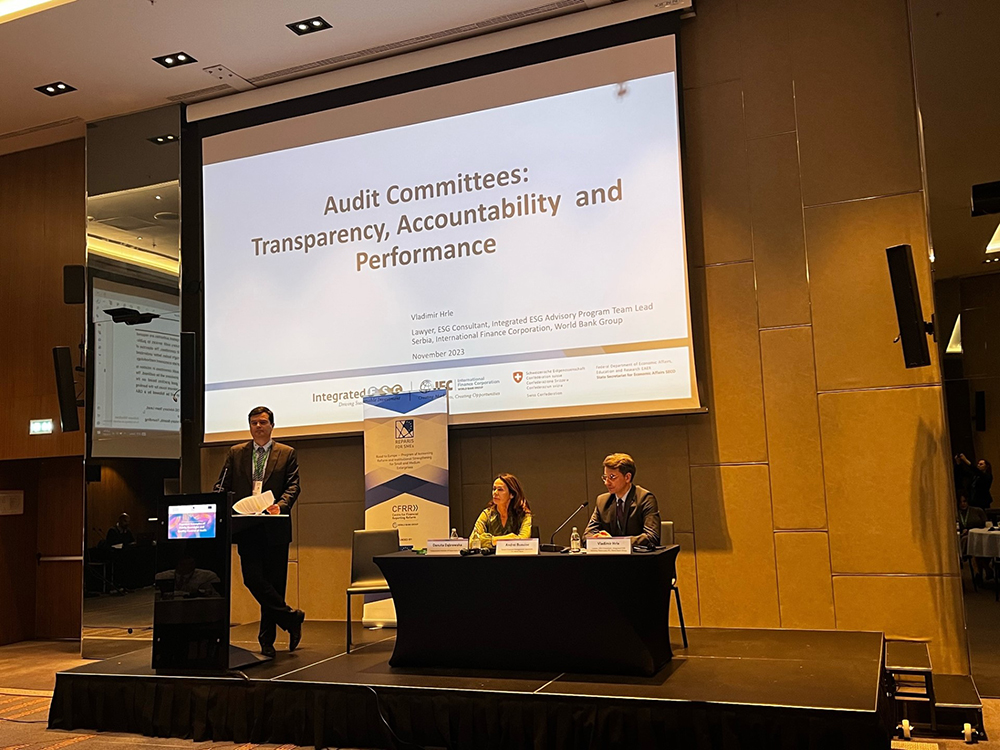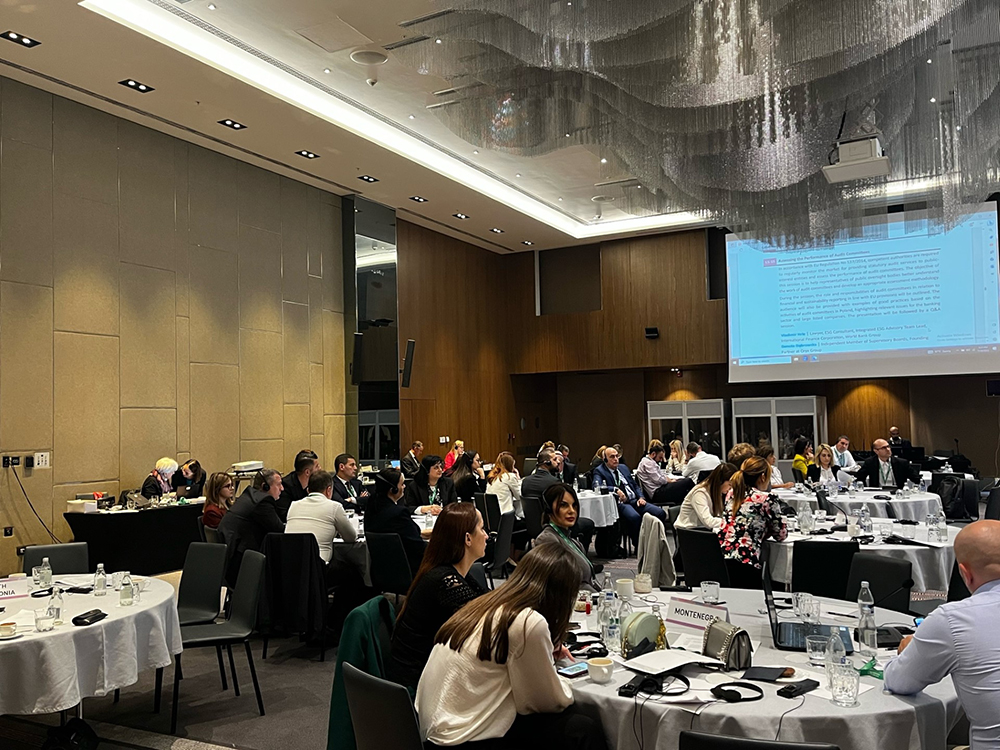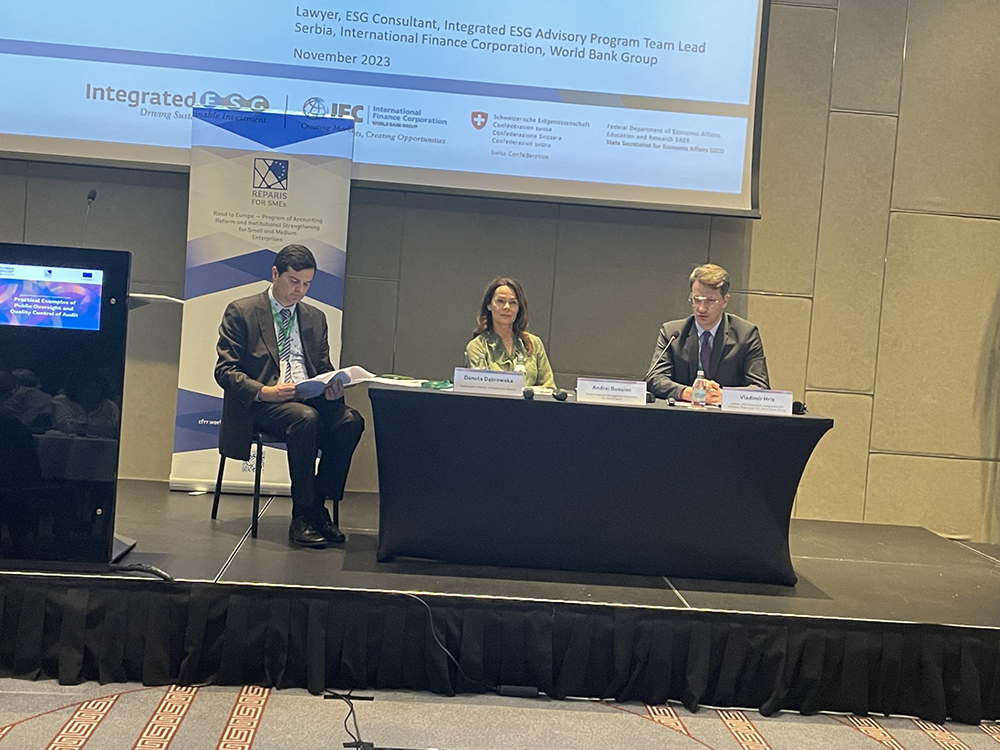The second Audit Quality Assurance Forum convened on November 7-8 in Skopje, North Macedonia, bringing together 51 representatives from competent authorities in the field of audit public oversight across Western Balkan countries. Ministries of finance and professional accounting associations, which play a crucial role in this domain, were also present.
This event, organized as part of the regional project named the Road to Europe Program of Accounting Reform and Institutional Strengthening for Small and Medium Enterprises (REPARIS for SMEs), aimed to deliver targeted training to board members, key executive staff of competent authorities, and audit quality inspectors. The focus was on enhancing their understanding of governance, principles, and practical implementation of public oversight and quality assurance systems.
In addition, participants gained insights into the role and responsibilities of audit committees in relation to financial and sustainability reporting, aligning with EU provisions. Competent authorities from Western Balkan countries were informed that in the EU similar institutions have the obligation to regularly monitor the market for statutory audit services provided to public interest entities and evaluate the performance of audit committees. The audience was presented with illustrative examples of best practices, drawing from the experiences of audit committees in Poland. These examples shed light on pertinent issues within the banking sector and large listed companies.
Participants also discussed the training agenda for the upcoming series of training sessions, which are expected to be conducted virtually or through a hybrid approach. It was unanimously agreed that future training sessions should be customized to suit the specific experience and expertise of each public oversight board or authority responsible for public oversight and quality assurance. This means tailoring the training according to the proficiency levels of the participants. Also, it was acknowledged that gaining a deeper understanding of the unique aspects involved in conducting quality assurance inspections in different sectors, such as banking, assurance, energy, etc., would be highly beneficial.



